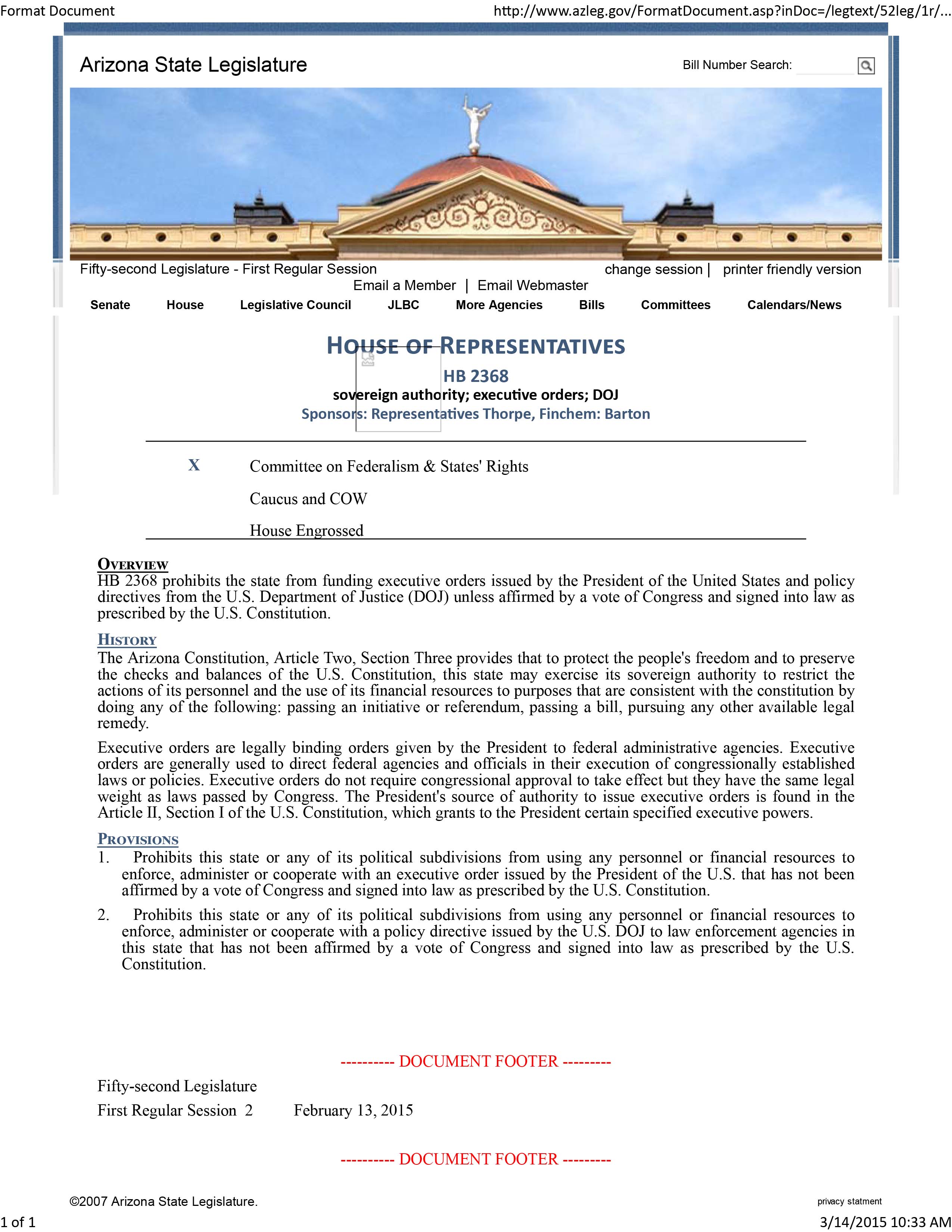the reverse obarometer
BREAKING: British PM Cameron, in close reelection contest, has called WH to ask that Obama intervene against him.
— Bill Kristol (@BillKristol) March 18, 2015
Crusades, jihad & Obama’s high horse
Obama summarily condemned the crusades, but the crusades weren’t only a persecution of Obama’s people. The crusades were instigated against many different target populations and places, only some of them Muslim. Moreover, crusading was presented to potential faithful fighters as a means to their spiritual salvation. See Riley-Smith’s description about the motivations for the crusades below.
When asked about jihad, however, Obama left the door wide open for jihad to continue as a religious practice, presumably under appropriate Islamic guidance.
From a purely spiritual point of view, the crusades were not substantially different than Obama’s holy jihad.
So, why won’t Obama summarily condemn jihad?
“It was the belief that crusades were collective acts of penance, repayments through self-punishment of the debts owed to God for sin, which distinguished them from other holy wars. Whereas most Christian holy war demanded the service of God in arms by a devout soldier responding passively to divine command, the crusader was invited to cooperate actively, because everything depended on his decision to undertake the penance of fighting in a campaign in which his obligations, at any rate if completed, would constitute for him an act of condign self-punishment. It is no exaggeration to say that a crusade was for an individual only secondarily about service in arms to God or the benefiting of the church or Christianity; it was primarily about benefiting himself, since he was engaged in an act of self-sanctification.
The power of this conception rested in the long term on the way it answered the concerns of the faithful. The remission of sins was as relevant to survivors as to those facing death, and it was offered to members of a society in which it was almost impossible for a layman of any substance, bound by responsibilities to kindred, clients, and dependants, to avoid serious sin. For hundreds of years Europe remained marked by anxieties about sinfulness and a consequence was the attractiveness to many of crusading, which provided the opportunity to make a fresh start.”
Jonathan Riley-Smith, The Crusades, Christianity and Islam, 2008, p. 33.
one, two, many Does
“laboratory for a novel social or economic experiment”
“It is one of the happy incidents of the federal system that a single courageous State may, if its citizens choose, serve as a laboratory; and try novel social and economic experiments without risk to the rest of the country.”
MR. JUSTICE BRANDEIS, dissenting.
New State Ice Co. v. Liebmann, 285 US 262 – Supreme Court 1932
You see this quote frequently relied upon these days by the pro-MJ crowd. It’s worth noting, however, that in New State Ice Co., the Court disallowed the state from acting as a “laboratory for a novel social or economic experiment.”
Moreover, Brandeis did not say “democracy,” but “novel social and economic experiments,” which is not at all the same thing as democracy – another example of progressive historicism?
Still, Go Arizona!
Every state should respond to the Obama administrations’ overreach with legislation to limit the effect of federal executive actions unsupported by congressional statute.
Jumpin’ Jacks
Politifact and Kevin Williamson
Williamson – a writing role model for essayists.

Politifact and Me
Intellectual dishonesty among the ‘fact-checkers’
By Kevin D. Williamson — February 25, 2015
Politifact, which is published under the flag of the Tampa Bay Times, the chief executive of which, Paul Tash, is the chairman of the Poynter Institute, a member of the Pulitzer prize committee, and a disgrace to his trade, recently decided to “fact-check” my colleague Jonah Goldberg, but it was really fact-checking me, as Jonah was citing a claim in a column of mine.
The claim is a straightforward one: That under the so-called Affordable Care Act, the federal government will recognize and subsidize a great deal of hokum, things like naturopathic medicine and acupuncture that have no scientific basis, that have been clinically shown to be useless or worse, and that are rooted in rank mysticism, from the “qi” energy that acupuncturists claim to manipulate—and which does not, technically speaking, exist—to the “innate intelligence” underpinning chiropractic theory—which does not, in fact, exist, either. As endless peer-reviewed scientific studies document, this stuff is pure quackery, but it is, thanks to the Affordable Care Act and the focused exertions of former Iowa Senator Tom Harkin—one of those Democrats who really love science we’re always hearing about—it is hokum with increasing official status. Senator Harkin successfully campaigned for ACA provisions that would forbid “discrimination” against any practitioner of purported healing arts who is licensed. Many states, California prominent among them (quelle surprise!) license practitioners of superstitious hokum, including naturopathic “doctors” and acupuncturists. There are many reasons for this: One is that superstitious hokum is extraordinarily popular, and the state desires to keep an eye on its practitioners; a second is that California is, as advertised, full of lunatics and the entrepreneurs who service their lunacy; the third is that reasons Nos. 1 and 2 combine to generate revenue for the state, which will—in what must be the most perfect example of progressivism in practice—yank your license to practice medically null but voguish Eastern mysticism in the state of California for failure to pay your crushing California taxes. I once encountered a Whole Foods with a yoga studio inside it, and thought that if one could only get Chris Hayes to broadcast from there (there’s still time, Chris!) it would have constituted a turducken of lifestyle liberalism upon which there would be no improving, but losing your California acupuncturist’s license to the Sacramento taxman surely surpasses that.
If you are wondering where the fact-checking comes in for all of that, you’re going to keep wondering. Politifact doubly embarrassed itself on the issue, first with the risibly sloppy and shockingly (if you don’t know very many reporters) lazy reporting habits of Louis Jacobson, who wrote that neither Jonah nor I had “returned inquiries,” by which he means to say responded to them. He tried to contact Jonah by sending a single email to a rarely used public account, and me he tried to contact—if you can call it that—by tweeting that he was fact-checking something. I do not follow him on Twitter, having been contentedly unaware of his existence, and I do not follow Politifact, for that matter. I am not sure that what Jacobson did constituted an “inquiry” at all, but I am sure that it does not constitute “inquiries.” When I pointed this out—and noted that National Review is in the telephone directory and has been since the Eisenhower administration, that we employ an energetic young man to answer the telephones, that my email address is obtainable from the web site, that National Review retains the services of various publicists and whatnot for the purpose of connecting its writers with media figures, etc.—“pick up the goddamned telephone,” in short—Jacobson responded in an odd way: by sending the same email again to Jonah the next morning, long after the piece had been published. His editor, the feckless, gormless, and in any intelligent world unemployable Angie Holan, noting the general mockery and merriment that my complaints about Politifact’s practices produced on Twitter and elsewhere, very quickly found a way to get in touch with me—turns out that it’s not that hard!—and asked for a telephone conversation, which I declined, having nothing to say to the intellectually dishonest, the cretinous, or the servile, except in those cases in which I am matched with such on cable-news panels. (Hello, Sally.)
Politifact later apologized for Jacobson’s reportorial slobbery—though not for the fact that he lied about it; “inquiries,” indeed—but stood by its rating of the piece in question: “half true.”
Why half? That, the second part of Politifact’s self-beclownment, remains a mystery. Politifact concedes the actual facts of the case—“stipulates that as long as an alternative-medicine practitioner is fully licensed by a state, insurance companies must reimburse them just as they do medical doctors,” etc.—but goes on to add that not much money is going to the cause of advancing pseudoscientific hokum, that bureaucratic “guidance” is not as enthusiastic as some practitioners of these allegedly healing arts would like, that some aspects of the law amount mainly to “symbolism,” (which is not, as Jonah points out in his own response, actually true) etc. Which is to say, it disputes claims that neither Jonah nor I made: Neither of us wrote or implied that a main purpose or a major spending priority of the ACA involved homeopathy. This is one of those “context” things that people who do not wish to admit the truth like to talk about. The point is that you could be sure that if similar concessions were made to pseudoscientific hokum less popular among Democrats–intelligent design, for example, or various kinds of gay-conversion therapies–the response would be loud, long, and heavy on the theme of Republicans’ hating and distrusting science. When a nobody Republican state legislator in Idaho says something stupid about female anatomy, it’s national news and an indicator of the Republicans’ corporate disregard for science. Democrats actually write recognition of and subsidies for unscientific mysticism into a law–the most important law they have passed this century–and the news media have approximately squat to say about it.
So of course Politifact ignored the actual context of the piece in question: demands that Scott Walker answer questions about his opinions on evolution. My point—which I have made repeatedly—is that progressives mainly like to talk about science when it can be used as a cudgel for their moral program (regarding homosexuality, for example) or when it can be used to annoy or embarrass conservative Christians, some of whom have boobish attitudes about evolution. Notably, Politifact omitted all consideration of the most important part of my criticism: that the things we will be recognizing and subsidizing have zero basis in science. Subsidies for homeopathy would be an entirely different question if homeopathy were not bogus. But it is. This, the most important aspect of the question, Politifact ignores, instead choosing to focus on ACA marginalia that neither Jonah nor I even addressed. This is a variation on the classical straw-man argument: There is no question about the facts that I presented, but holes can be punched in other arguments—never mind that I did not make those arguments.
Again, I point out that this goes on under the flag of the Tampa Bay Times, a highly regarded newspaper. Having spent most of my adult life editing newspapers, I care about them, even the ones to which I have no direct connection. What is going on under the watch of Paul Tash and Angie Holan is intellectual dishonesty. It is obvious intellectual dishonesty. It is undeniable intellectual dishonesty. All intelligent people recognize this. That intellectual dishonesty undermines the credibility not only of Paul Tash’s mentally flaccid operation but of newspapers categorically, which is one of the reasons I object so strongly to it. (I will be giving a speech on intellectual dishonesty in a few weeks at Hillsdale, where I am teaching a seminar in which I will instruct students how not to be embarrassing buffoons such as Louis Jacobson, Angie Holan, the editors of Rolling Stone, et al.) Newspapers have very little capital other than their reputations—a press, a building, and a distribution network can become worthless with shocking speed in the absence of institutional credibility.
One way to ruin a newspaper’s reputation is to make the news subservient to politics, which is what has happened at Politifact. The Obama administration is dear to Democrats, and the ACA, being threatened from several directions at once, is something that Democrats and so-called liberals feel the need to defend. Politifact, and by extension the Tampa Bay Times and the Poynter Institute (which owns the newspaper), is deploying rank and obvious intellectual dishonesty in the service of narrow, partisan political sympathies. It is detestable, and it deserves to be condemned by all those who care about newspapers—not only by the conservatives against whom its intellectual dishonesty is directed.
For the record, I made no attempt at all to contact Paul Tash, Angie Holan, or Louis Jacobson before writing this. I cannot imagine that any one of them has anything of any interest to add on this or any subject, and my capacity for enduring lies and stupidity is not unlimited.
The insensitivity just drips from the page. You can practically see it flow into a tidal wave of Leftist umbrage. The Left will take offense whether or not it’s given, but Williamson’s writing could push some Leftists into catatonic excitation, defined by Wiki as a state of constant purposeless agitation and excitation. And how great is that!
the community of astroturfers
Sharyl Attkisson, author of Stonewalled, provided a rich paradigm for deconstructing propaganda on her blog yesterday. It wraps up the Elbert County United Front of Leftists – the Prairie Sunny Truthy Plainsy Birdy bunch – in a succinct unified theory that de-cloaks much of their collective bovine scat.
Top 10 Astroturfers
“What’s most successful when it appears to be something it’s not? Astroturf. As in fake grassroots.
The many ways that corporations, special interests and political interests of all stripes exploit media and the Internet to perpetuate astroturf is ever-expanding. Surreptitious astroturf methods are now more important to these interests than traditional lobbying of Congress. There’s an entire PR industry built around it in Washington.
Below are the top ten astroturfers as viewed by respondents in an informal, non-scientific survey.*
TOP 10 ASTROTURFERS
1. Moms Demand Action for Gun Sense in America and Everytown
2. Media Matters for America
3. University of California Hastings Professor Dorit Rubenstein Reiss and Children’s Hospital of Philadelphia’s Dr. Paul Offit
4. “Science” Blogs such as: Skeptic.com, Skepchick.org, Scienceblogs.com (Respectful Insolence), Popsci.com and SkepticalRaptors.com
5. Mother Jones
6. Salon.com and Vox.com
7. White House press briefings and press secretary Josh Earnest
8. Daily Kos and The Huffington Post
9. CNN, NBC, New York Times, Politico and Talking Points Memo (TPM)
10. MSNBC, Slate.com, Los Angeles Times and Michael Hiltzik of the Los Angeles Times, MSNBC and Jon Stewart.
Astroturfers often disguise themselves and publish blogs, write letters to the editor, produce ads, start non-profits, establish Facebook and Twitter accounts, edit Wikipedia pages or simply post comments online to try to fool you into thinking an independent or grassroots movement is speaking. They use their partners in blogs and in the news media in an attempt to lend an air of legitimacy or impartiality to their efforts.
Astroturf’s biggest accomplishment is when it crosses over into semi-trusted news organizations that unquestioningly cite or copy it.
The whole point of astroturf is to try to convince you there’s widespread support for or against an agenda when there’s not.
The language of astroturfers and propagandists include trademark inflammatory terms such as: anti, nutty, quack, crank, pseudo-science, debunking, conspiracy theory, deniers and junk science. Sometimes astroturfers claim to “debunk myths” that aren’t myths at all. They declare debates over that aren’t over. They claim that “everybody agrees” when everyone doesn’t agree. They aim to make you think you’re an outlier when you’re not.
Astroturfers and propagandists tend to attack and controversialize the news organizations, personalities and people surrounding an issue rather than sticking to the facts. They try to censor and silence topics and speakers rather than engage them. And most of all, they reserve all their expressed skepticism for those who expose wrongdoing rather than the wrongdoers. In other words, instead of questioning authority, they question those who question authority.
Much of this sounds familiar to many Americans. The results of an informal, non-scientific poll identify groups related to Gun Safety Action Fund, Inc. as top Astroturf efforts. These groups include Moms Demand Action for Gun Sense in America, Everytown, Everytown for Gun Safety, Gun Sense, It’s Time for Gun Sense in America, Gun Sense Voter, I’m a Gun Sense Voter, Moms Take the Hill and Stroller Jam.
The groups present themselves as grassroots organizations of “mayors, moms survivors and everyday Americans.” They are spearheaded by former New York Mayor and multi-billionaire Michael Bloomberg, and former PR professional and mother Shannon Watts. Last year, they announced a $50 million political campaign to try to counter the efforts of the formidable gun rights lobby.
Second to the gun control groups in being identified as a top disseminator of astroturf and propaganda is the controversial, left wing blog Media Matters for America with the stated goal of waging “guerrilla warfare and sabotage” against FOX News. More broadly, Media Matters acts on behalf of the interests of Hillary Clinton and the Obama Administration, sometimes in direct consultation with Obama officials. It was founded by the troubled Democratic political operative David Brock, who formed the super-Political Action Committee (PAC) American Bridge that raised funds to help elect liberal Democrats to Congress. Brock also served on the board of the super-PAC Priorities USA, which announced support for Hillary Clinton’s potential run for president.
A close third is an array of blogs that use words such as “science” and “skeptic” in their titles or propaganda in an attempt to portray an image of neutrality and logic when they are often fighting established science and serving pro-pharmaceutical industry agendas. These include: ScienceBlogs.com (using the pseudonym “Orac”); vaccine inventor Dr. Paul Offit of The Children’s Hospital of Philadelphia who earned an undisclosed fortune from Merck pharmaceuticals; and his apparent replacement in trolling blogs Dorit Rubenstein Reiss. She is a law professor at the University of California Hastings and a frequent contributor to SkepticalRaptors.com.
A final category frequently mentioned is quasi-news organizations that sometimes throw readers off the astroturf trail because they publish some legitimate news-type or pop-culture stories, but mix in propaganda or astroturf. These sources tend to be highly-cited by the unquestioning traditional news media either to advance an agenda, or in the media’s attempt to be hip and edgy or “get clicks.”
Sometimes, astroturf is in the eye of the beholder. But no matter how you see it, there is no short supply.”
Christian roots of secularism
Larry Siedentop, “Inventing the Individual – The Origins of Western Liberalism”, 2014, p. 361.
“What is the crux of secularism? It is that belief in an underlying or moral equality of humans implies that there is a sphere in which each should be free to make his or her own decisions, a sphere of conscience and free action. That belief is summarized in the central value of classical liberalism: the commitment to ‘equal liberty’. Is this indifference or non-belief? Not at all. It rests on the firm belief that to be human means being a rational moral agent, a free chooser with responsibility for one’s actions. It puts a premium on conscience rather than the ‘blind’ following of rules. It joins rights with duties to others.
This is also the central egalitarian moral insight of Christianity. It stands out from St Paul’s contrast between ‘Christian liberty’ and observance of the Jewish law. Enforced belief was, for Paul and many early Christians, a contradiction in terms. Strikingly, in its first centuries Christianity spread by persuasion, not by force of arms – a contrast to the early spread of Islam.”
Obversism
The following thoughts are in response to: CNN anchor: Americans rights do not come from God.
The Left constantly try to remove God from the history of the founding of America. They’ll never change our history but they’re doing a decent job of educating future generations of Americans to be ignorant of it.
Ironically, the Left consider the removal of God from American history to be progress. Of course progress presumes a known objective. Since no one can know the future, progressive is an adjective that can only be applied to a sequence of past events.
Those events need to be linked by cause and effect in a chain of consequences where one thing provably led to another, and so on, until the chain arrived at the point where the progression ended. Causation is a high standard, based in evidence, and the Left never even pretend to adhere to it.
Moreover, progressions lead to better and worse outcomes. Only the Left would argue that progress sponsored by Obama to divide Americans by race and economics, to undermine capitalism, to diminish the West, to ration healthcare, to name a few, could be positive progressions.
The Left toss around words like progress and historical inevitability like a three-year-old scatters tinker toys on her playroom floor. It doesn’t take much for them to reach a conclusion, and once they have one, it’s a short throw for them to raise up arms to defend it. With the obsession of true believers they march into battle to maybe die over their odd assemblies.
These people are all over the place. The news is full of the worst cases from around the world, but only matters of degree separate the killers from the more constrained instances roaming the hills and vales of Elbert County. The unquiet dreams of the utopian united front haunt and possess them all.
But what do the Left get out of undermining the American system? The American constitutional legal contract between citizen and state is the best deal a people ever had with a government.
It’s an incontrovertible fact that the supreme legal status of an American citizen under a constitutionally limited government rests on the premise of a divine right. Whether one affirms the existence of metaphysics does not change the existence of our Constitution and the legal rights it protects.
The Left zeitgeist holds that everyone must think like the Left. They’re probably insecure, and not without good reason. Look at the smorgasbord of cracked philosophies, failed economics, and pop craziness they set about to uphold on a daily basis. Who in their right mind does this to themselves?
Well, they’re special and romantic and different and artistic and oh so sensitive – a very right-brained bunch if you buy into that myth. And the bountiful American capitalist system provides them all the sustenance they need to flourish and grow their numbers.
Of course once they leave the protected borders of America and the shelter of constitutional freedom, they have to be pretty good with an AK-47 to survive for very long.
But they’re a reckless bunch too. They destroy with abandon whole systems they don’t even understand. They create unnecessary negative consequences each day in the ham-handed belief that dialectic conflict – the “I know you are but what am I?” theory – must produce a better outcome for humanity. No hubris there, by the way – an inability to fix themselves apparently qualifies them to fix everyone else.
This mindlessness elevated to the status of a god replaces God with a new mystique, a universal variable that changes from one moment to the next, and consists of a conflicting opposite reflection of whatever happens. It is the obverse of the universe – call it obversism – not to be confused with Rand’s objectivism. The former consists of disagreement and dissent, the latter on consensus and consent.
Oh they’ll pay lip service to democracy because they know it sells in America. But they’re not interested in consent nearly so much as compliance.
No objective answers exist to metaphysical questions – questions about a state of being outside of the observable universe. Though this does not deter the 95% of humanity who believe in metaphysical existence, I choose to not speculate – especially after observing the recorded history of calamities that ensued from those types of speculations.
But I do know a good deal when I see it. We have one in America, and I would never trade it for the mercurial utopian dreams in the Leftist bag of tricks.
the Era of Bad Faith
How Jon Stewart Gave Us Obama
(. . .and New Plains, and TruthColorado, and McShay, and the Democrats haunting the halls of Elbert County government)
Posted By Daniel Greenfield On February 11, 2015 @ 12:55 am In Daily Mailer,FrontPage
Generation Xers mourning Stewart’s departure ought to be thanking the man who made the awkward comedian’s long tenure of pulling faces while making snide remarks possible; President Bush.
George W. Bush made Jon Stewart. Even Stewart has admitted that his show came into its own when Bush did. A world in which a President Gore spent eight years sonorously lecturing Americans about his love for the trees is also a world in which Jon Stewart would be out there doing pizza commercials.
It was Bush’s victory that took a flailing cable show hosted by an irritating little standup comedian with more neurotic tics than a flea-bitten Woody Allen and turned him into the voice of liberalism. Stewart’s nervous smirk and his passive aggressive mockery became the zeitgeist of urban Democrats nervously responding to Bush’s popularity and the rise of American patriotism after September 11.
The Democratic Party was out of ideas. The politicians who would become some of Bush’s most fevered critics were still following the president’s cues. A newly serious America was confronting a world war.
Stewart’s disingenuousness, veering from ironic detachment to self-righteous hectoring, undermined real sincerity with fake sincerity. The Daily Show’s audience of hipster yuppies cheered their newfound faith in sincere cynicism while the calculated ironic distance of his comedy kept him safe from critics. Even while he attacked the media’s dishonesty, his own routine was the most dishonest of them all.
His fake news was real news, biased and spun with punch lines. It was fake news that was real and just as fake as the rest of the news. The truth was that the lie was still a lie.
What Stewart offered a party dragged down by a morose Gore and Kerry was the promise of cool. Their former figurehead had started out playing the saxophone on the Arsenio Hall Show only to decay into a bloated red-faced mess. With towers burning and wars rising, Stewart was to be their bridge to a cooler and younger 21st century that an aging Democratic Party no longer seemed able to grapple with.
Jon Stewart didn’t actually have cool, but he could offer it up inversely by way of mockery. Like a school paper’s drama critic, he might not be cool, but by railing against others, he could deny coolness to them.
Stewart wasn’t funny and knew little about politics. Unqualified to be in politics, journalism or even comedy, he straddled the line by casting himself as a critic of the media and politics. In his new role, he just had to be funny by the standards of politics and politically knowledgeable by the standard of comedians. It was a low bar that he just managed to limbo under. All he had to was to go after the right targets.
Audiences in retro glasses clapped like electroshocked seals at his every grimace and the media declared that his fake news was what real news should be. And worst of all, they meant it.
The media found Stewart refreshing not because he kept them honest, but because he encouraged their worst partisan instincts for dishonesty. The news anchors at their desks wished that they could say the things that he said. And some of them began to say them. Today the line has blurred so much that NBC News was thinking of offering Stewart a gig on Meet the Press.
While Bush may have made Stewart, Jon Stewart then made Obama. Barack Obama was a political version of Jon Stewart; a dishonest entertainer turning politics into a joke and then faking a theatrical sincerity while throwing out every possible distraction to cover up his dishonesty and bad faith.
Stewart provided a counterpoint to Bush’s real sincerity with fake sincerity. It was a joke that Stephen Colbert would polish into a single mindless routine. The flip side of the routine was that flippancy equaled sincerity. If the sincerity of patriotism and the devoutness of faith were a joke, then anyone who was joking was bound to be sincere. Those were the clown shoes to be filled by hope and change.
Obama’s fake self-awareness made him seem authentic in a social media society composed of reflective levels of personality. What Stewart offered Democrats was an evasive viewpoint without accountability. And nothing quite appeals to the cowardly instincts of a political hack like being able to take a political position without being held accountable for it. But it was Obama who truly embraced politics without accountability, transforming every issue into a joke or referencing it back to his own biography.
While he may have come out on the stage with a unique personal story, what kept Obama competitive was his skill at refracting everything through layers of irony and self-awareness. His approach was to borrow Stewart’s own routine without any of its ambiguity. Stewart’s pretense of triangulation became Obama’s obsession with turning his radical left-wing politics into an imaginary middle ground.
Stewart and Obama had come out of a political movement trying to respond to September 11 without having the first idea how to do so. Stewart’s comedy paved the way for minimizing the threat while inflating the absurdity of those trying to fight it. It is an approach that Obama continues to embrace.
Both men have pretended that they aren’t ideologues. They have acted as if the left is a third way, rather than the same old way, selling that dishonest message through style, not substance.
Jon Stewart did not offer an alternative to the media. He was what the media was becoming. The merging of opinion and reporting along with the overlay of cynical humor over every story have become ubiquitous. Stewart didn’t pave the way for a better media. He paved the way for Buzzfeed, Vice, Politico and Vox. He turned the news into a joke with an agenda… which is exactly what it is now.
Obama was an equally fake alternative. He didn’t offer inspiration, but manipulation. His new ideas were the same old ideas packaged around his personality, around new styles and designs fed through social media and media appearances. Unwilling to connect with opponents, reporters and even voters, he then settled for digging in on his grievances and breaking the rules by ruling the country unilaterally.
Generation X cynicism fused with millennial brand awareness to create a political monster who might not be able to lie to the people all the time, but who cynically made the existence of his lies irrelevant.
Stewart’s Daily Show had offered an antidote to the Bush era of patriotism, sincerity and decency. Its antidote was passive aggressive ridicule and political satire as sincerity. After the Bush era ended, Stewart and his fellow comedians had little left to do except take on the job of defending Obama, while occasionally critiquing him. They had become the official court jesters of the Democratic Party.
It’s no wonder that Stephen Colbert and Jon Stewart, anticipating eight more years of Hillary, have chosen to move on. The genre has long since outlived its original response to 9/11 sincerity. It now exists only to feed on itself. To act as a comedic Media Matters churning out viral videos slamming opponents for some sin against the left while pretending to be part of mainstream consensus.
Jon Stewart gave us the era of Obama. As that era of bad faith comes to a close, so does his own.
Freedom Center pamphlets now available on Kindle: Click here.
Subscribe to Frontpage’s TV show, The Glazov Gang, on YouTube and LIKE it on Facebook.
Article printed from FrontPage Magazine: http://www.frontpagemag.com
URL to article: http://www.frontpagemag.com/2015/dgreenfield/how-jon-stewart-gave-us-obama/
The Unintended Consequences of “Smart Growth” from Mackinac Center on Vimeo.
Shut Out: How Land-Use Regulations Hurt the Poor
Economics paints a damning picture of zoning and smart growth
FEBRUARY 05, 2015 by SANDY IKEDA
People sometimes support regulations, often with the best of intentions, but these wind up creating outcomes they don’t like. Land-use regulations are a prime example.
My colleague Emily Washington and I are reviewing the literature on how land-use regulations disproportionately raise the cost of real estate for the poor. I’d like to share a few of our findings with you.
Zoning
One kind of regulation that was actually intended to harm the poor, and especially poor minorities, was zoning. The ostensible reason for zoning was to address unhealthy conditions in cities by functionally separating land uses, which is called “exclusionary zoning.” But prior to passage of the Civil Rights Act of 1968, some municipalities had race-based exclusionary land-use regulations. Early in the 20th century, several California cities masked their racist intent by specifically excluding laundry businesses, predominantly Chinese owned, from certain areas of the cities.
Today, of course, explicitly race-based, exclusionary zoning policies are illegal. But some zoning regulations nevertheless price certain demographics out of particular neighborhoods by forbidding multifamily dwellings, which are more affordable to low- or middle-income individuals. When the government artificially separates land uses and forbids building certain kinds of residences in entire districts, it restricts the supply of housing and increases the cost of the land, and the price of housing reflects those restrictions.
Moreover, when cities implement zoning rules that make it difficult to secure permits to build new housing, land that is already developed becomes more valuable because you no longer need a permit. The demand for such developed land is therefore artificially higher, and that again raises its price.
Minimum lot sizes
Other things equal, the larger the lot, the more you’ll pay for it. Regulations that specify minimum lot sizes — that say you can’t build on land smaller than that minimum — increase prices. Regulations that forbid building more units on a given-size lot have the same effect: they restrict supply and make housing more expensive.
People who already live there may only want to preserve their lifestyle. But whether they intend to or not (and many certainly do so intend) the effect of these regulations is to exclude lower-income families. Where do they go? Where they aren’t excluded — usually poorer neighborhoods. But that increases the demand for housing in poorer neighborhoods, where prices will tend to be higher than they would have been.
And it’s not just middle-class families that do this. Very wealthy residents of exclusive neighborhoods and districts also have an incentive to support limits on construction in order to maintain their preferred lifestyle and to keep out the upper-middle-class hoi polloi. Again, the latter then go elsewhere, very often to lower-income neighborhoods — Williamsburg in Brooklyn is a recent example — where they buy more-affordable housing and drive up prices. Those who complain about well-off people moving into poor neighborhoods — a phenomenon known as “gentrification” — may very well have minimum-lot-size and maximum-density regulations to thank.
When government has the authority to restrict building and development, established residents of all income levels will use that power to protect their wealth.
Parking requirements
Another land-use regulation that makes space more expensive is municipal requirements that establish a minimum number of parking spaces per housing unit.
According to Donald Shoup’s analysis, parking requirements add significantly to the cost of housing, particularly in areas with high land values. For example, in Los Angeles, parking requirements can add $104,000 to the cost of each apartment. Parking requirements limit consumers’ choices and increase the cost of housing even for those who prefer not to pay for parking.
Developers typically build only the minimum amount of parking required by law, which indicates that those requirements are binding. That is, in a less-regulated environment, developers would devote less land to parking and more land to living space. A greater supply of living space will, other things equal, lower the cost of housing.
Smart-growth regulations
In the 1970s, municipalities enacted new rules that were designed to protect farmland and to preserve green space surrounding rapidly growing cities by forbidding private development in those areas. By the late 1990s, this practice evolved into a land-use strategy called “smart growth.” (Here’s a video I did about smart growth.) While some of these initiatives may have preserved green space that can be seen, what is harder to see is the resulting supply restriction and higher cost of housing.
Again, the lower the supply of housing, other things equal, the higher real-estate prices will be. Those who now can’t afford to buy will often rent smaller apartments in less-desirable areas, which typically have less influence on the political process. Locally elected officials tend to be more responsive to the interests of current residents who own property, vote, and pay taxes, and less responsive to renters, who are more likely to be transients and nonvoters. That, in turn, makes it easier to implement policies that use regulation to discriminate against people living on low incomes.
Conclusion
Zoning, minimum lot sizes, minimum parking requirements, and smart-growth regulations demonstrably and significantly increase the cost of housing for everyone by raising construction costs and restricting the supply of housing.
The average household in the United States today, rich or poor, spends about a third of its income on housing. But higher home prices hit lower-income households disproportionately hard because a dollar increase in housing expenditure represents a larger percentage of a poorer household’s budget. Indeed, the bottom 20 percent of households spends around 40 percent of income on housing.
In other words, these land-use regulations are unfairly regressive. Relaxing or even removing them would be a step toward achieving greater equity.
Sandy Ikeda is a professor of economics at Purchase College, SUNY, and the author of The Dynamics of the Mixed Economy: Toward a Theory of Interventionism.
repeal planning, forego bureaucracy, end fear
“News programming uses a hierarchy if it bleeds, it leads. Fear-based news programming has two aims. The first is to grab the viewer’s attention. In the news media, this is called the teaser. The second aim is to persuade the viewer that the solution for reducing the identified fear will be in the news story. If a teaser asks, “What’s in your tap water that YOU need to know about?” a viewer will likely tune in to get the up-to-date information to ensure safety. The success of fear-based news relies on presenting dramatic anecdotes in place of scientific evidence, promoting isolated events as trends, depicting categories of people as dangerous and replacing optimism with fatalistic thinking. News conglomerates who want to achieve this use media logic, by tweaking the rhythm, grammar, and presentation format of news stories to elicit the greatest impact. Did you know that some news stations work with consultants who offer fear-based topics that are pre-scripted, outlined with point-of-view shots, and have experts at-the-ready? This practice is known as stunting or just-add-water reporting. Often, these practices present misleading information and promote anxiety in the viewer.
. . . What occurs psychologically for the viewer is a fragmented sense of knowing what’s real, which sets off feelings of hopelessness and helplessness – experiences known to worsen depression.”
Psychology Today, https://www.psychologytoday.com/blog/two-takes-depression/201106/if-it-bleeds-it-leads-understanding-fear-based-media
Fear mongering is a successful strategy for acquiring and holding power. Peel back the top layer of this onion to look at the underlying human dynamic.
The fear mongerer controls the subject, the solution, the delivery means, and the debate, while the audience experiences heightened anxiety, worsening depression, hopelessness and helplessness. The exchange between mongerer and audience disempowers the audience and empowers the mongerer.
It is an inherently political transaction with a winner and losers, and its application infects public policy and politics at every level of government. Statesmanship died long ago, probably sometime before the modern progressive [aggressive] era. Selling emotional fears to control people proved far more effective than upholding arcane constitutional constructs.
Currently in Elbert County, lobbyists for increased and prolonged planning and zoning rely heavily on the fear tactic, as reported in various local news sources.
But these same people – Democrats and Republicans – who planned Elbert County’s economic stagnation, are now clamoring for more planning and zoning. Ironically, after more than a decade of their dead Elbert County economy, it would be far more rational to fear them and the government planning they promote, than the fears they traffic in.
But that recognition destroys the illusion the Thayers, Shippers, Browns, Crisans, Rosses, etc., must maintain to keep themselves relevant and in power.
So, embrace the fears they sell to you, forget the consequences of their past leadership we already live with, give up hope of ever finding a job in Elbert County, and let this place continue its slide into a stagnant retirement community.
– Or –
Disavow their false god of planning, get government out of our local economy, repeal their oppressive zoning laws, invite the charlatans to return to the planned disaster zones from which they escaped, and let the free market transform Elbert County into a sustainable economy where people have jobs and raise families.
a restatement of the obvious Obama agenda
the state of the cruft
The Pretense of the State of the Union
There are no masters at the top who know what’s best for everyone
JANUARY 21, 2015 by JEFFREY A. TUCKER
Some people hated it. Some people loved it. Just about everyone seems to miss the real point.
The most disturbing part of the annual “State of the Union” address by the US president does not concern the specifics of the content, or the policies – as wonderful or objectionable as they may be. The core problem is the very strange presumption that one man comprehends an entire nation and its meaning, embodies something like a guiding spirit of a people, and thereby earns the right to manage the entire collective from the top down through the judicious use of power.
In a time of leviathan in which an incomprehensibly immense government aspires to master and administer every aspect of life itself, the notion that one powerful man, having processed all relevant data and related causes and effects, can stand behind a podium and sum up a national spirit and agenda, the very State of the Union, plunges us into the realm of total fantasy.
We flatter ourselves to believe that this is not an age of faith but rather an age of reason. The purpose and ethos of the State of the Union address is not reasonable.
Maybe such a presumption of knowledge wouldn’t be such a terribly offensive idea in an age of liberalism, where the government had little to no power. If the government had such limited functioning, it would be more plausible for one person to report on the activities not of the nation but of the executive branch of the government itself.
If this were President Rutherford B. Hayes or President Grover Cleveland speaking about their jobs, the State of the Union address would not be as absurd. They ruled before the federal government could tax income, manage schools, regulate consumer products, arrest and jail people for their consumption choices, unleash a police state, or start wars without congressional approval — all before government consisted of hundreds of agencies, thousands of divisions staffed with millions of permanent and unaccountable lifetime employees enforcing an accumulated cruft of 150 years of legislation.
And, as a point of fact, every president from Thomas Jefferson through the 19th century delivered his address in the form of a humble letter. It was not the “State of the Union.” It was an annual accounting by the president to the Congress. It explained what the president was doing, more in the form of an annual employment review. The president was in the hot seat and the Congress was to be his judge.
This pattern was broken by Woodrow Wilson — the imperial president who gave us the income tax, the Fed, and World War I. Wilson forged the template for the rest of history. He shocked Congress by delivering his address in person, with the beginnings of the modern ritual attendant upon the event.
Thus was born the modern cult of the presidency, built under the leadership principle. And yet, even then, his address was largely limited to matters of state: what the government was doing and why. Wilson’s imperium was over government, not the nation as a whole, so his speech didn’t address how government would manage the whole of life itself.
Then came Franklin Roosevelt and the centralized economic planning of the New Deal. Nothing was outside the purview of Washington. Once the United States entered World War II, the annual report to Congress became the State of the Union, as if the presidential mind was capable of extracting all relevant information, sea to shining sea, putting it in poetic words, presenting a vision for this gigantic collective, and embodying the whole spirit of a people. Remember that this was epoch of the dictator and every statesmen in the world, in his heart of hearts, aspired to be that guy.
It was also the beginning of the media age, so the message to Congress became a message to the entire country, attempting to somehow capture and characterize the whole of our lives. The advent of the modern State of the Union address in 1942 really amounted to a nationalization of the whole population.
FDR said in this first State of the Union speech, implausibly, in the midst of massive death by conscription and material privation of war: “I am proud to say to you that the spirit of the American people was never higher than it is today — the Union was never more closely knit together — this country was never more deeply determined to face the solemn tasks before it.”
Just look at those words. Are we really being asked to believe that the American people as a whole have a spirit, and that the president is somehow magically ordained to know its height? That he knows all previous collective spirits in American history and can know for sure, based on his omniscient measuring skills, that it has never been higher? And can a country really be “determined” in the sense that it has a unified will, no different from an individual will, and it acts in history as an aggregate?
There is nothing about this sense that embodies the idea of freedom. “The American spirit” — or the spirit of any people — is not a singular entity but a social order in which millions and billions of individuals have rights and shape their own lives in cooperation with others based on their peaceful choices.
Freedom is about an infinite diversity of changing plans, aspirations, and circumstances of time and place. It is also about a future that unfolds unpredictably in light of human choice, learning, growing, and trial and error, one life at a time. Freedom has no master at the top who knows what’s best for everyone.
There is a reason that despotism has long been associated with an all-knowing Great Leader. And of course all good things that happen under the Great Leader’s watch are due to him. Every healing, every new job, every new industry, every calming of every civil strife, every broken family that found its way, every lost soul that found salvation — all credit is due to him who rules: so knowing, so benevolent, so generous and loving. All of us live in waiting for the next miracle from the hand that feeds us, clothes us, educates us, and makes us whole.
Maybe you can say Oh this posturing doesn’t really matter. It’s just political rhetoric. And that is true, but we should not be so dismissive about it. If this type of language were coming from a pompous local pastor, or a bloviating businessperson at a Rotary luncheon, we would be free to ignore it. But it’s different when it comes from the head of state with the power to do unthinkable things whether we like it or not.
Since the time of FDR, this speech has been designed to perpetuate an all-encompassing political program, and, also, to marginalize the disgruntled, to treat dissidents like non-persons, to disregard and dismiss anyone who doesn’t fall in line with its plans. This is why these speeches can so often make your skin crawl.
There are fact checkers and commentators who oppose the specific points of the State of the Union. Of course, there are plenty of bad policy ideas pushed through this venue. And those are easy to refute. Government cannot and does not create jobs. Government cannot bring health and wealth to a country. Government cannot make people smarter. It cannot cause incomes to rise by taxing some people more and transferring the proceeds to a bureaucracy. The best thing that government can do is get out of the way so that people can begin to build their own security and prosperity.
But the specifics of the policies proposed in these addresses are not the worst part. The most objectionable aspect of the annual State of the Union is its epistemological conceit. The president has no access to the information he would need in order to know what he claims to know. He is a mere mortal who lives in real time, like the rest of us. He does not know the State of the Union.
The single hardest part of life as we know it is understanding the state of our own individual lives. Parents with teeenagers know that it is a full-time job just to keep up with what their own kids are doing. Owners of small businesses scramble every day just to know what is going on in their shops. Managers of medium-sized companies quickly discover that the only way forward is to trust others to know and manage the best they can. CEOs start their jobs with the presumption that their best hope for success is to outsource as much of their job as they can.
And yet, with the US president, we are being asked to believe that this one man can know not just the whole of the affairs of state but also the business of 316 million people: all our hopes, frustrations, and aspirations, collect them all into a big bundle and characterize them in total, and know the best possible means to get us all from here to there.
In order to convince us all of this ridiculous idea — that he knows both the here and the there and all that falls between — the speeches have become increasingly personalized, constantly referring to archetypes within the social fabric. This is not an easy trick. The speech itself is produced not by magic fairies whispering truth in the presidential ear but rather through the much more mundane task of hiring professional ghostwriters who have heavy training in the political arts.
Speechwriter Cody Keenan is the man who did it for President Obama this year. Keenan is from Chicago, grew up privileged in Connecticut, attended Northwestern University, and had a long stint as a DC fixer and wordsmith for Senator Teddy Kennedy. Now at the top of his game, his task is to bamboozle the public into believing that one man with massive power has their interests at heart and that his awesome knowledge and compassion will somehow translate into wondrous programs that will improve everyones lives.
It’s a charade. Those close to power know this. They know that the entire scene is artificial, designed to pump up power and influence for its own sake. They figure it’s dirty business, but someone has to do it.
Down deep this is cynicism and all of it is wrapped in spectacle. We are right to fear for the souls of people involved in such a hoax. A real idealist would not hope for ever-better ways of manufacturing myths through high-profile media events that disguise the true nature of government. A real idealist would hope for a world in which political leaders elicit massive public suspicion and opposition, not just when they are technically wrong on matters of policy but also because they pretend to possess knowledge and competence that no mortal can possibly have.
“If man is not to do more harm than good in his efforts to improve the social order,” wrote F.A. Hayek in “The Pretence of Knowledge,” he will first need to recognize the “insuperable limits to his knowledge.” He will need to discover a “lesson of humility which should guard him against becoming an accomplice in men’s fatal striving to control society — a striving which makes him not only a tyrant over his fellows, but which may well make him the destroyer of a civilization which no brain has designed but which has grown from the free efforts of millions of individuals.”
But let’s say that there absolutely must be a State of the Union address. What would a moral and honest speech say?
It’s your life. I am a person just like you, with no greater insight or wisdom than you, and no magical powers to create wealth or happiness. I can only get out of your way and wish you all the best as you, in cooperation with whomever you choose, make the most of this life, come what may.
ABOUT
JEFFREY A. TUCKER
Jeffrey Tucker is a distinguished fellow at FEE, CLO of the startup Liberty.me, and editor at Laissez Faire Books. Author of five books, he speaks at FEE summer seminars and other events. His latest book is Bit by Bit: How P2P Is Freeing the World.















